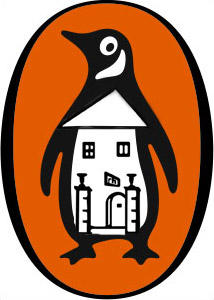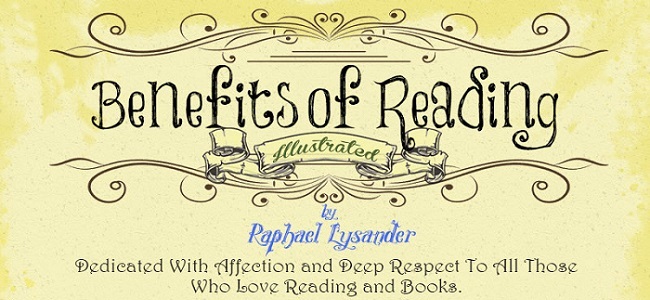Story Surgeon is a New Type of Fair Use, Not Copyright Infringement
There’s ![storysurgeon[1]](https://the-digital-reader.com/wp-content/uploads/2014/01/storysurgeon1-250x187.jpg)
So…playing now on Kickstarter, a project called Story Surgeon. Created by aspiring author Ryan Hancock, Story Surgeon is:
An eBook notation app that saves your personal edits as a separate file, and can be shared with anyone who owns the original eBook.
In other words, Story Surgeon is an app that enables anyone to alter a published book in any way they like, and spread the altered copy around at will.
I would disagree with her interpretation, actually.
According to the description (it’s clearly stated) Story Surgeon is going to give readers the ability to edit an ebook and create a custom version of the ebook. They can then save the changes as a separate file, and then share the edits (the user’s work) online so anyone who owns a copy of the ebook and the Story Surgeon app can recreate the edited version of the ebook. It won’t enable you to share the ebook itself, just your own work.
Arguably that is not copyright infringement any more than taking a pair of scissors to a paper book and then explaining online how to duplicate your efforts.
It’s a great idea, IMO, and it’s one I’ve heard before. Chris Walters wrote about a similar idea once or twice a couple years ago:
A wholly formed and unauthorized Harry Potter novel would clearly be a violation of U.S. copyright law, but the process is decentralized so that neither the author of the new work nor the template website is responsible for the final creation of the infringing work. In fact, other templates are available that would turn the story into a brand new work with original characters and places, or that would let a reader personalize it with friends and local places. If you’re feeling perverse, you can apply a Vampire Chronicles template and giggle at Lestat, Louis and Claudia as mystery solving young wizards vampires.
Now I’ve got a new, unauthorized Harry Potter book.
This is certainly the first time that I have heard about someone trying to develop an app to share the instructions to edit a file, but it’s not the first time that I can recall reading about fans, parents, and other parties re-editing works for one reason or another.
For example, back in 2001 a Star Wars fan edited the commercial release of The Phantom Menace to create The Phantom Edit. This was in the pre-Youtube era, and that movie was probably the first most famous re-edited work which probably inspired many of the custom movie trailers, fan flicks, and other fan generated content found on Youtube today.
There’s also the gamer dad who reprogrammed The Legend of Zelda so his daughter could play Link as a girl. And it was only last month that Slate published an article about a parent rewriting The Hobbit as she read it to her daughter, only in the new version Bilbo is a she:
My 5-year-old insists that Bilbo Baggins is a girl.
The first time she made this claim, I protested. Part of the fun of reading to your kids, after all, is in sharing the stories you loved as a child. And in the story I knew, Bilbo was a boy. A boy hobbit. (Whatever that entails.)But my daughter was determined. She liked the story pretty well so far, but Bilbo was definitely a girl. So would I please start reading the book the right way?
I hesitated. I imagined Tolkien spinning in his grave. I imagined mean letters from his testy estate. I imagined the story getting as lost in gender distinctions as dwarves in the Mirkwood.
Then I thought: What the hell, it’s just a pronoun. My daughter wants Bilbo to be a girl, so a girl she will be.
And you know what? The switch was easy. Bilbo, it turns out, makes a terrific heroine. She’s tough, resourceful, humble, funny, and uses her wits to make off with a spectacular piece of jewelry. Perhaps most importantly, she never makes an issue of her gender—and neither does anyone else.
Do you see what I did there?
I just gave you a couple examples of a positive way for someone to use and share an app like Story Surgeon which might possibly be copyright infringement, but only a cad would argue against them.
And that’s not the only way this app could be used. What if one reader used it to create and insert their own glossary or map index? This could prove useful when reading large fantasy novels like the Game of Thrones, ones where the reader cannot keep track of the hundreds of characters in a dozen locations. What if a teacher created their own annotation file for a Shakespeare play being read in class? Or what if (giggle) Story Surgeon were used to edit Bram Stoker’s Dracula so it resembled Twilight?
None of those uses are infringing, so clearly Chris Meadows was right when he argued that this app has numerous non-infringing uses. Sadly, that’s probably not going to stop someone from complaining and getting the app pulled from Kickstarter, though they might not have to bother.
This funding campaign has only raised $170 of the $15,000 requested, so it’s probably not going to go anywhere.
Which is a shame, because there’s a market for this idea.


Comments
Story Surgeon: An App For Copyright Infringement | SFWA January 23, 2014 um 6:46 pm
[…] of books was illegal, template or not, the app would seem to have plenty of non-infringing uses." Nate Hoffelder argues flatly that I'm wrong, and that Story Surgeon "is not copyright infringement any more than taking a pair of scissors to a […]
Elene Sallinger January 24, 2014 um 12:12 am
You state "Arguably that is not copyright infringement any more than taking a pair of scissors to a paper book and then explaining online how to duplicate your efforts."
It seems to me that it’s more akin to taking scissors to a book and sharing the cut up book, not the instructions for how to duplicate it.
I am an author with four published books, IMO, this is much like a gun. Its rightness or wrongness is completely dependent upon who wields the technology. I’ve already had my ebooks stolen once, personally, this makes me wary.
Nate Hoffelder January 24, 2014 um 6:33 am
Except Story Surgeon doesn’t enabler you to share the edited ebook. That is clear from the Kickstarter description.
Will Entrekin January 24, 2014 um 9:06 am
No, but it seems that the ideal execution is that a reader could create a filter, and then other readers could apply that filter to their own copies of the ebook. So, for example, some enterprising reader with delicate sensibilities could remove all depictions of violence, sex, and race from The Color Purple, so that other readers whom discussions of such content might offend can better enjoy the book.
Sorry, as an author, I wouldn’t want filters applied to my novels. Readers whom "mature content" offends can stick to–well. Immature content, I guess.
Ryan Hancock January 24, 2014 um 2:27 am
Nate, I couldn’t agree more. Thanks so much for going to bat for me!
If you’re interested, here is my response to Ms. Strauss’s article.
http://storysurgeongeneral.blogspot.com/2014/01/the-most-important-blog-post-i-will.html
Will Entrekin January 24, 2014 um 8:38 am
The first book I’d story surgeon would be the Bible, to make it more tolerant and more fully embracing of human rights for all.
I’m reminded of "I Believe," from The Book of Mormon.
Stumbling Over Chaos :: Linkity. Making people late for work since 2009. Whoops. January 24, 2014 um 8:50 am
[…] Story Surgeon sounds like fair use, but some writers think it’s actually copyright infringemen…. […]
Daniel Vian January 24, 2014 um 9:15 pm
It seems the morphed text would be a derived work, and as such an illegal infringement if distributed free or for a price. In our new digital technology, the nature of "derived" will eventually be redefined to include any form of machine derivation. Even if the original work in toto is not distributed, a distribution of pieces derived from the work, or machine language morphing the work, is infringement. IMHO, anyway. The crucial legal questions will be how much and what aspects of the original work are recognizable. It’s the expression of an idea in the original work that’s under copyright, so anything morphing that expression with the original still recognizable is a derived work and an infringement if without license. In the courts, the critical question will likely be how much loss of revenue is there to the original author? If there is commercial use of the derivation and any loss at all, the morphing will probably be found to be illegal infringement. Selling a copy machine is not illegal infringement. But selling a copy machine that produces a derived work by instruction may be ruled illegal. We will see…
Daniel Vian January 24, 2014 um 11:17 pm
Also, if the developer needs to copy the work in order to produce a specific app based on the work, the app to be sold commercially, that copying without a license is probably an infringement. There is really no "fair use" for commercial purposes unless the fair use is quite minimal.
Smoley January 26, 2014 um 2:49 pm
This reminds me of ClearPlay (http://en.wikipedia.org/wiki/ClearPlay) which is a DVD player that can use a filter file on a USB stick to remove various elements of adult content when the original DVD movie is played.
This filtering is allowed by the Family Home Movie Act of 2005. That exemption added to the Copyright Act allows only the filtering (removal) of content and not the addition of audio or video to the original work. That requirement makes me think that what Story Surgeon is doing would not pass the Fair Use determination in a court of law.
Ryan Hancock January 28, 2014 um 5:42 am
Hey Nate,
I’ve addressed the author’s moral right in regard to Story Surgeon if you’re interested.
http://storysurgeongeneral.blogspot.com/2014/01/morality-and-thomas-jefferson.html